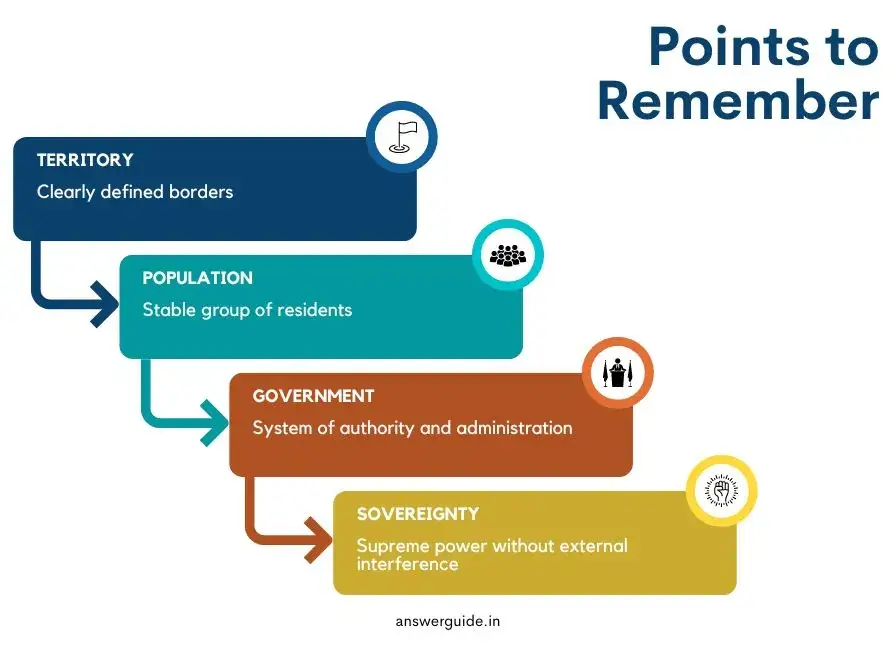Many scholars and political theorists have tried to encapsulate the concept of a ‘state’ by identifying key elements that define its existence and functionality.
In this article, we will probe into the essence of a state by explaining four fundamental elements that are crucial to its constitution and operation.

Key Takeaways:
- State Definition: A state is a politically organized territory with a permanent population, defined territory, government, and capacity to enter into relations with other states.
- Permanent Population: A state must have a stable population that resides within its borders.
- Defined Territory: A state must have clearly defined and recognized borders that separate it from other states.
- Government: A state must have a system of governance that exercises authority over its population and territory.
- Capacity to Enter Relations: A state must have the ability to engage in diplomatic relations with other states and international organizations.
Defining a State
A State is a political entity with a defined territory, a permanent population, a government, and the ability to enter into relations with other states. It possesses sovereignty, meaning it has ultimate authority over its affairs, both internally and externally.
Your understanding of a state is crucial in grasping political systems. It encompasses a defined territory, a permanent population, a government, and the capacity to enter into relations with other states.
Historical Background
Any discussion on the concept of the state must acknowledge its roots in ancient civilizations such as Mesopotamia, Egypt, and Greece. These early societies laid the foundation for the modern state structure we see today.
Historical states like the Roman Empire and the Chinese dynasties further developed the concept of a centralized government and defined borders, influencing future political systems.
Essential Elements of a State
1. Territory
- Definition: Territory refers to the geographical area that a state occupies. It includes land, water, and airspace within the state’s boundaries.
- Explanation: A state must have a well-defined territory to exercise its authority and enforce laws. The size of the territory can vary, but it must be clearly demarcated to establish jurisdiction.
- Example: India has a defined territory that includes all land within its borders, its territorial waters extending up to 12 nautical miles from the coast, and the airspace above.
2. Population
- Definition: Population is the group of people who reside within the state’s territory.
- Explanation: A state needs a population to function because these individuals form the basis of society, economy, and culture. The population includes citizens and, in some cases, residents without citizenship.
- Example: The United States has a diverse population of over 330 million people, including citizens and immigrants.

3. Government
- Definition: Government is the organization or system through which a state is controlled and administered.
- Explanation: The government creates and enforces laws, provides public services, and ensures order. It comprises different branches (executive, legislative, judicial) that work together to govern the state.
- Example: The government of France includes the President (executive), the Parliament (legislative), and the courts (judicial).
4. Sovereignty
- Definition: Sovereignty is the supreme power or authority a state has over its territory and population, without any external interference.
- Explanation: Sovereignty means that a state can make its own laws, conduct foreign relations, and defend itself. It is a key characteristic that distinguishes a state from other entities.
- Example: Japan exercises sovereignty by setting its own laws, conducting diplomatic relations with other countries, and maintaining its own military forces.
Summary
In summary, a state is a political entity characterized by a defined territory, a permanent population, a government, and sovereignty. These elements ensure that the state can function independently, maintain order, and interact with other states on equal terms.



